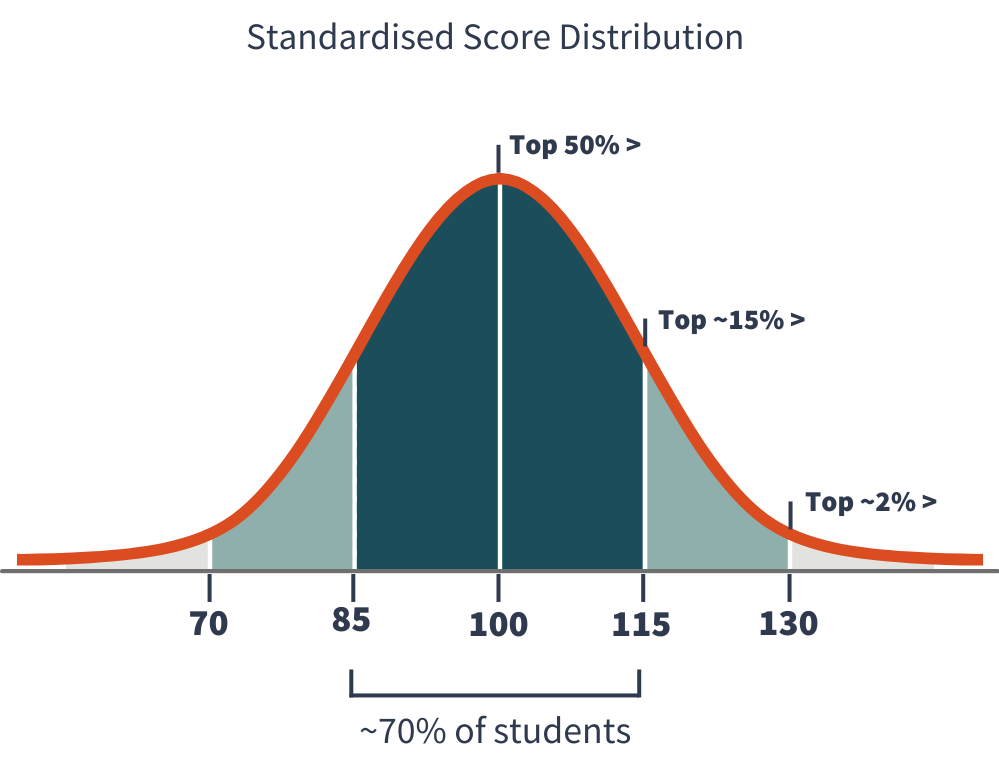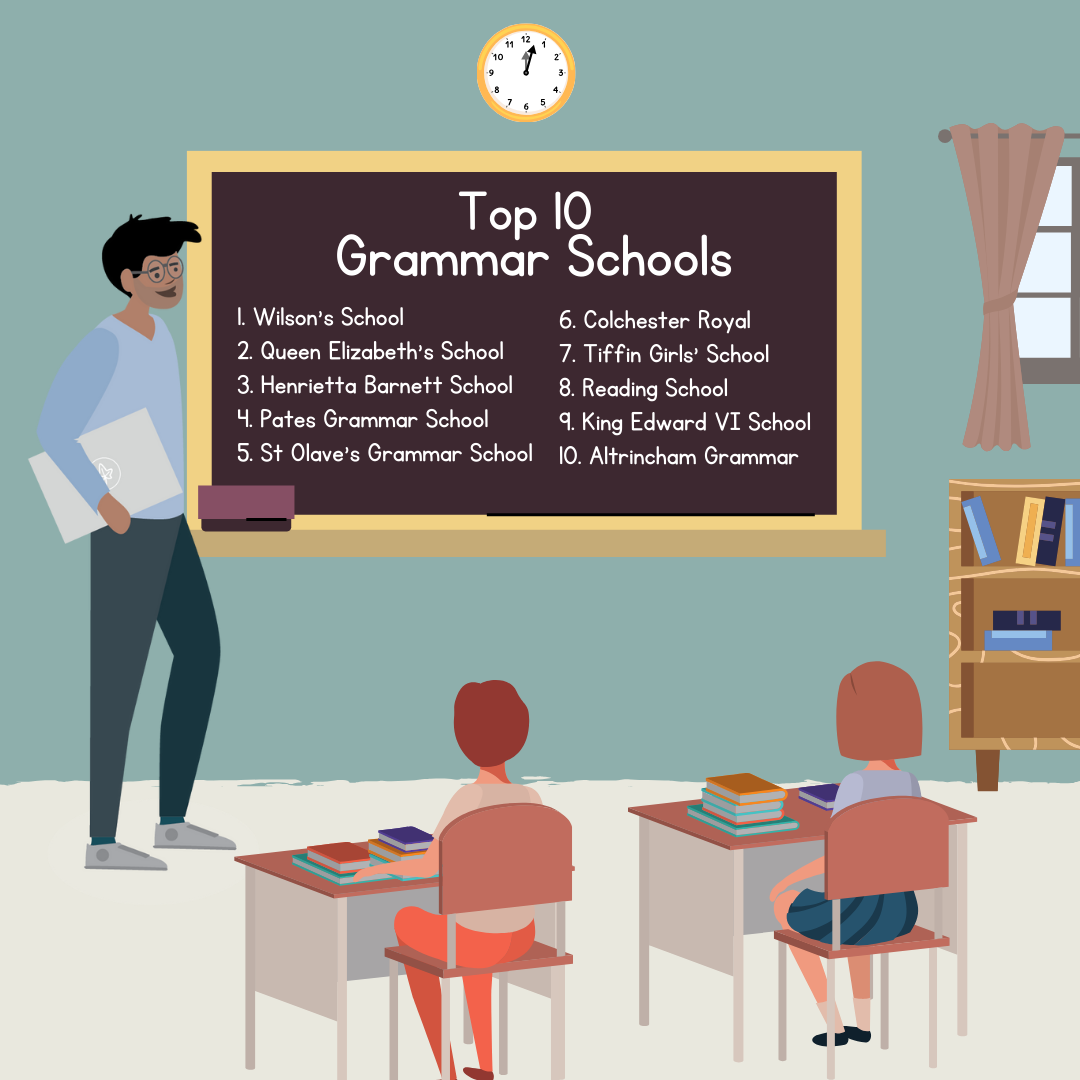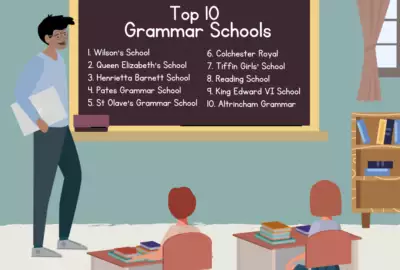Expert Insights
Grammar vs Private School: Which Is the Best Choice for Your Child?
Published 21st March 2025 by Alastair

Broadly speaking, the UK’s secondary education landscape is made up of three main types of schools: Comprehensive Schools, Grammar Schools, and Private (Independent) Schools.
The school environment, curriculum, and ethos can significantly influence not only your child’s academic journey but also their personal development, confidence, and future opportunities. In the UK, parents are fortunate to have a variety of educational pathways to choose from, each with its own distinct characteristics and advantages. However, this diversity can also make the decision-making process feel overwhelming.
This blog aims to provide an incredibly comprehensive, side-by-side comparison of Grammar Schools vs Private Schools. We will delve into the differences in curriculum, class sizes, admissions processes, costs, social diversity, academic performance, and more. By thoroughly exploring these aspects, we hope to equip you with the knowledge and insight needed to make the best possible decision for your child’s educational future.

Broadly speaking, the UK’s secondary education landscape is made up of three main types of schools: Comprehensive Schools, Grammar Schools, and Private (Independent) Schools.
Comprehensive Schools are state-funded and non-selective, admitting pupils regardless of academic ability. They are designed to serve local communities, providing free education to all children within their catchment areas. These schools typically follow the National Curriculum and aim to offer a well-rounded education to students from diverse backgrounds.
Grammar Schools, also state-funded, differ in one key aspect: they are academically selective. Admission is based on performance in the 11+ examination, which tests skills in English, mathematics, and reasoning. Grammar schools are renowned for their strong academic focus, rigorous teaching, and consistently high results. They are often seen as a means of offering exceptional education to bright students, without the financial burden associated with fee-paying schools.
Private Schools, also known as Independent Schools, operate outside of state control and are funded through tuition fees paid by parents. These schools have the autonomy to design their own curricula, often offering a broader range of subjects and extracurricular activities. Smaller class sizes, state-of-the-art facilities, and a strong emphasis on personalised learning experiences are key features of private education. Many private schools have a long-standing tradition of academic excellence and provide pathways to top universities both in the UK and abroad.
For parents who prioritise academic achievement and holistic development, the decision often narrows down to a comparison between Grammar Schools and Private Schools. Both offer high standards of education and are associated with excellent academic outcomes. Yet, they differ considerably in areas such as cost, admissions criteria, teaching styles, and extracurricular opportunities.
Before making an informed decision between Grammar Schools and Private Schools, it’s essential to understand what each type of school entails, including their ethos, structure, and admissions process. While both are known for their academic focus and strong results, they differ considerably in how they operate and who they cater to.
Grammar Schools are a specific type of state-funded secondary school in the UK, characterised by their academic selectivity. They admit students based on performance in an entrance examination, typically taken at the age of 10 or 11. This exam, commonly referred to as the 11+, tests a child’s proficiency in areas such as English, mathematics, verbal reasoning, and non-verbal reasoning.
The concept of Grammar Schools has a long history in the UK, dating back to the Middle Ages. However, the modern Grammar School system was largely shaped by the 1944 Education Act, which introduced the tripartite system. This system divided secondary education into Grammar Schools (for academically able pupils), Secondary Technical Schools, and Secondary Modern Schools.
Today, although many Grammar Schools have been absorbed into the comprehensive system, around 163 Grammar Schools still exist across England, particularly in counties such as Kent, Buckinghamshire, and Lincolnshire. Grammar Schools are highly regarded for their rigorous academic curriculum and emphasis on traditional subjects, including English, mathematics, sciences, humanities, and modern languages.
Because they are state-funded, Grammar Schools do not charge tuition fees, making them an attractive option for academically able students from a range of socioeconomic backgrounds. However, their selective nature means that gaining admission can be highly competitive, with some schools receiving ten or more applicants for every available place.
Private Schools, often referred to as Independent Schools, differ significantly from Grammar Schools in that they are entirely funded by tuition fees paid by parents. These schools operate independently of government control, which allows them to set their own curricula, teaching methods, and admissions criteria.
Private Schools in the UK come in many forms, including day schools, boarding schools, preparatory schools (prep schools), and all-through schools that cater to a wide range of age groups. These institutions are renowned for offering a broad, well-rounded education, often with a particular emphasis on developing not only academic abilities but also personal and social skills.
One of the defining features of Private Schools is their small class sizes. The lower pupil-to-teacher ratio allows teachers to provide individualised attention, tailoring their teaching approach to each student’s strengths, weaknesses, and learning style. This personalised approach is often seen as one of the key advantages of private education.
Additionally, Private Schools typically have access to extensive resources and facilities, including advanced science laboratories, performing arts centres, sports complexes, and a wide range of extracurricular activities such as clubs, societies, and international trips. Many schools offer subjects that may not be widely available in the state sector, including languages like Latin, Mandarin, Greek, and niche disciplines such as Philosophy or History of Art.
Private Schools are selective in their admissions, often requiring students to sit entrance exams, attend interviews, and provide academic references. However, many schools offer scholarships and bursaries to talented students or those from lower-income backgrounds, making their education more accessible to a broader range of families.
When deciding between Grammar Schools and Private Schools, it's crucial to compare the two across a range of factors that can significantly influence your child’s academic experience and overall well-being. While both types of schools are associated with strong academic results, they differ in terms of funding, admissions, curriculum, class sizes, facilities, and more. Below, we offer a side-by-side comparison to help you identify which option aligns best with your child’s needs and your family’s circumstances.
Grammar Schools:
Private Schools:

Grammar Schools:
Private Schools:
Grammar Schools:
Private Schools:

Grammar Schools:
Private Schools:
Grammar Schools:
Private Schools:
Grammar Schools:
Private Schools:

Both Grammar and Private Schools:
Private Schools:
Grammar Schools:
This side-by-side comparison demonstrates that while both Grammar and Private Schools share a commitment to academic excellence, they differ considerably in terms of cost, accessibility, curriculum, teaching style, and overall environment. The right choice will depend on your child’s individual needs, learning style, and your family’s circumstances—factors we’ll continue to explore in the upcoming sections.
When comparing Grammar Schools and Private Schools, one of the most important distinctions lies in how they approach the curriculum and the teaching methodologies they employ. While both types of schools strive for academic excellence, their structure, flexibility, and educational philosophies can be quite different, influencing how your child experiences learning.
Grammar Schools are known for their rigorous, structured approach to teaching. These schools adhere closely to the National Curriculum, which ensures that core academic subjects such as English, mathematics, sciences, and modern languages form the backbone of their educational offerings. The focus is primarily on preparing students to excel in GCSEs and A-levels, with an emphasis on strong academic foundations, discipline, and measurable outcomes.
Teaching methods in Grammar Schools tend to be more traditional and linear, often involving a significant amount of formal instruction, homework, and regular testing. Lessons are generally paced to cater to students who are academically able and motivated, creating a fast-moving classroom environment that assumes a high level of baseline ability.
The priority is clear: delivering high academic results, often with a goal of progression to top universities. However, this can also mean there is less room for curriculum flexibility or experimentation compared to other school types.
Private (Independent) Schools offer significantly more freedom and flexibility when it comes to curriculum design. Unrestricted by the National Curriculum, these schools often tailor their educational programmes to include a broader, more diverse range of subjects. Alongside traditional subjects, Private Schools frequently provide niche offerings such as:
This flexibility also extends to examination boards. Many Private Schools offer alternatives like iGCSEs and Pre-U qualifications, providing students with additional challenges and more globally recognised qualifications.
Another distinguishing feature is the teaching style. Smaller class sizes allow teachers to employ personalised learning strategies, adapting lessons to suit the individual strengths, learning styles, and interests of each pupil. Teachers can spend more time providing feedback, identifying gaps in understanding, and offering enrichment opportunities to stretch and develop students beyond the standard curriculum.
Moreover, the emphasis in Private Schools often includes developing soft skills such as critical thinking, leadership, creativity, and emotional intelligence—elements that complement academic learning and prepare students for success beyond the classroom.
One of the most practical yet impactful differences between Grammar Schools and Private Schools is the size of their classes and the resulting level of individual attention that students receive. Class size directly influences teaching dynamics, classroom management, and the extent to which lessons can be personalised to meet the needs of each student.

In Grammar Schools, class sizes are generally comparable to those found in comprehensive schools, often averaging between 25 to 30 students per class. While these schools maintain a high academic standard, the larger class sizes mean that teachers must balance the needs of more pupils simultaneously. The selective admissions process ensures that most students perform at a similar academic level, allowing lessons to progress at a challenging pace.
However, the reality of larger classes is that there may be less scope for one-on-one teacher interaction on a daily basis. Teachers must focus on delivering content efficiently to a group of equally capable students, leaving limited opportunity to provide detailed individual feedback or tailored support within class time.
That said, many Grammar Schools counterbalance this with structured support systems such as extra revision sessions or after-school study groups, though these may not offer the same level of personalisation as private institutions.

Private Schools are well-known for their significantly smaller class sizes, typically averaging 12 to 16 pupils per class, with some schools maintaining even lower numbers. This low student-to-teacher ratio is one of the key selling points of private education.
The benefit of small classes is clear:
Additionally, many Private Schools supplement classroom teaching with dedicated mentoring, one-on-one tutorials, or personalised study plans—all designed to optimise student success.
While academic performance is a critical consideration when choosing a school, a well-rounded education often extends beyond the classroom. Facilities and extracurricular opportunities play a significant role in shaping students’ personal development, social skills, and interests. When comparing Grammar Schools and Private Schools, notable differences emerge in this area, largely influenced by the resources and funding available to each.
Grammar Schools, as state-funded institutions, have varying levels of resources depending on local authority budgets and additional funding streams. While their primary emphasis is on academic excellence, many Grammar Schools do offer extracurricular activities, though often on a more modest scale compared to their private counterparts.
Typical extracurricular options at Grammar Schools may include:
However, it’s important to note that the breadth and quality of these activities can differ significantly from one Grammar School to another. Facilities such as sports fields, laboratories, and arts centres are generally functional but may not be as modern or well-equipped as those in Private Schools due to budget constraints.

In contrast, Private Schools have access to significantly greater financial resources through tuition fees, allowing them to invest heavily in state-of-the-art facilities and diverse extracurricular programmes.
Facilities commonly found in Private Schools include:
Moreover, Private Schools pride themselves on offering a wide array of extracurricular activities designed to develop leadership, creativity, resilience, and global awareness. These may encompass:
Participation in extracurriculars is not just encouraged but often integrated into the overall school experience, contributing to a holistic education that balances academic learning with personal growth.
One of the clearest differences between Grammar Schools and Private Schools lies in how students are admitted and how accessible these schools are to a wide range of families. Understanding each system's entry requirements and barriers is crucial in making an informed decision.
Grammar Schools operate on a merit-based admissions system. Entry is determined by a child’s performance in the 11+ examination, typically taken in Year 6 (age 10 or 11). This exam assesses a student’s abilities in key areas such as:
Success in the 11+ is required for consideration, and many Grammar Schools attract high numbers of applicants per available place, often resulting in fierce competition. Some schools see as many as ten applicants per spot, particularly in areas where Grammar Schools are few and far between. While many Grammar Schools operate within defined catchment areas, some accept students from a wider region, prioritising academic ability over proximity.
Accessibility:
Private Schools use their own admissions processes, which typically include:
While these schools are also selective, the criteria may place emphasis on a broader range of qualities beyond pure academic ability, such as leadership potential or extracurricular achievements.
Accessibility:
Understanding the financial implications of choosing between Grammar Schools and Private Schools is vital for many families. While both may offer strong academic outcomes, the cost structures differ fundamentally and can have a lasting impact on family finances.
One of the primary advantages of Grammar Schools is that they are entirely state-funded, meaning:
However, it’s worth noting that while tuition itself is free, there may still be additional costs for:
Another potential, albeit indirect, cost relates to preparation for the 11+ exam. Many parents opt to pay for private tutoring or preparation courses to increase their child’s chances of success. While not mandatory, the tutoring market around Grammar School admissions is significant and can range from hundreds to thousands of pounds per year, potentially creating an economic barrier for some families.
Private Schools require parents to pay annual tuition fees, which can vary widely depending on:
Typical costs:
In addition to tuition fees, there are often further expenses to account for, including:
Many Private Schools offer bursaries and scholarships, which can significantly reduce costs for students who excel academically, musically, or athletically, or for families who meet specific financial criteria. However, bursaries are competitive and typically cover only part of the total fee, making affordability a key consideration.
An often-overlooked but crucial factor when comparing Grammar Schools and Private Schools is the makeup of their student bodies, particularly in terms of socioeconomic diversity and how inclusive the environment feels to students from various backgrounds.
One of the key strengths of Grammar Schools is their potential to foster a socially diverse environment. Since they are state-funded and free to attend, Grammar Schools are accessible to students from all financial backgrounds, provided they succeed in the 11+ entrance examination.
This means that:
However, it is worth acknowledging that the increasing use of private tutoring to prepare for the 11+ may indirectly favour more affluent families who can afford extra help, potentially skewing access to some extent.
Traditionally, Private Schools have been associated with students from wealthier backgrounds, simply because of the high fees involved. Despite the availability of bursaries and scholarships, the majority of pupils at many independent schools still come from affluent families.
This can create an environment that, while well-resourced, may feel:
That said, many Private Schools actively seek to broaden their student intake by increasing bursary offerings and outreach initiatives to encourage applications from talented pupils of all backgrounds.
Both Grammar and Private Schools are increasingly conscious of the importance of fostering cultural diversity and promoting inclusion across different ethnicities, religions, and backgrounds. However, the balance of diversity may still vary by region, school ethos, and catchment area.

For many parents, one of the primary factors influencing the choice between Grammar Schools and Private Schools is their track record in academic performance and university placement. Both types of schools are renowned for consistently producing high-achieving students and preparing them for competitive higher education pathways, but there are nuances worth exploring.
Grammar Schools have a longstanding reputation for academic excellence. Their selective admissions process ensures that students are already academically able, which naturally contributes to strong exam results. Most Grammar Schools:
The structured and rigorous academic environment helps drive this success, with a clear focus on traditional academic subjects and university preparation.
However, the focus is typically more on academic achievement than on broader support for applications, such as interview preparation or guidance on extracurriculars valued by top universities.
Private Schools also boast impressive academic outcomes, often matching or exceeding those of Grammar Schools. However, what often distinguishes Private Schools is their holistic approach to university preparation.
Not only do they offer:
But they also provide extensive, dedicated support systems, such as:
Additionally, smaller class sizes and personalised teaching can allow teachers to guide students more closely, ensuring that their university applications are well-rounded, polished, and competitive.
To provide a clear and concise overview of the comparison, here is a summarised list of the key advantages and potential drawbacks of both Grammar Schools and Private Schools. This should help parents weigh up which type of school best aligns with their child's needs, learning style, and family priorities.
| Pros | Cons |
|---|---|
| Free Education – No tuition fees, fully state-funded. | Limited Availability – Only 163 remaining, creating geographical restrictions. |
| High Academic Standards – Consistently strong exam results and league table rankings. | Highly Competitive Admissions – Intense 11+ exam pressure; multiple applicants per place. |
| Selective Entry – Students share similar academic ability, fostering achievement. | Larger Class Sizes – Less opportunity for individualised attention. |
| Social Diversity – More inclusive socioeconomically, no tuition fees. | Fewer Extracurricular Options – Budget limitations may restrict activities/facilities. |
| Strong University Placement – Especially Russell Group and Oxbridge entries. | Single-Sex Education Common – May limit options for co-educational environments. |
| Tutoring Pressure – Private tutoring often used for 11+ preparation, creating indirect costs. |
| Pros | Cons |
|---|---|
| Small Class Sizes – Low student-to-teacher ratios allow personalised learning. | High Costs – Fees range from £15,000–£30,000+ per year, plus additional expenses. |
| Curriculum Flexibility – Broader subject choices, including niche languages and arts. | Socioeconomic Exclusivity – Predominantly attended by affluent families, despite bursaries. |
| Extensive Extracurricular Activities – Wide-ranging sports, arts, clubs, and trips. | Pressure to Perform – Students may feel pressure to justify financial investment. |
| Exceptional Facilities – Modern sports centres, science labs, arts spaces. | Awkward Entry Points – Some admit at 13+, requiring mid-education transitions. |
| Dedicated University Support – Specialist Oxbridge, Russell Group, and Ivy League prep. | Varied Quality – Standards differ; thorough research is needed. |
| Holistic Education – Focus on soft skills, leadership, and personal growth. |
Choosing the right educational pathway for your child is not solely about comparing facilities, academic results, or even costs. Every child is unique, and the best decision depends on a range of personal, financial, and educational factors. Below are the key considerations to help guide your choice between Grammar Schools and Private Schools:
Grammar Schools are best suited for academically able children who perform well under exam conditions and are comfortable in a structured, competitive environment. Success in the 11+ exam is essential, and the pace of learning is typically fast.
Private Schools offer more flexibility, catering to a broader range of abilities through smaller classes and personalised teaching. This may benefit children who need extra support or who excel when their individual learning preferences are accommodated.
Consider:
Grammar Schools are free to attend, but factor in potential costs for 11+ tutoring, uniforms, extracurriculars, and trips.
Private Schools involve significant tuition fees and other costs, though bursaries and scholarships may offer relief if your child is eligible.
Consider:
Private Schools tend to offer a wider variety of sports, arts, clubs, and international trips, supported by superior facilities.
Grammar Schools offer extracurriculars too, but these may be fewer or depend on available funding.
Consider:
Grammar Schools usually have larger classes, with less scope for individual attention but a strong peer group of high achievers.
Private Schools offer smaller class sizes and a more personalised learning experience.
Consider:
Grammar Schools tend to attract a socially diverse student body, but the competitive admissions process may influence dynamics.
Private Schools may have a more affluent, exclusive feel, although bursaries and scholarships are broadening access.
Consider:
Grammar Schools may require living within specific catchment areas, and their numbers are limited geographically.
Private Schools often offer boarding options, but location and transport may still affect day-to-day logistics.
Consider:
Both school types offer strong university placement records.
Private Schools provide more structured support for university applications, including personal statement guidance and interview prep.
Consider:

After weighing all the differences, advantages, and potential drawbacks of both Grammar Schools and Private Schools, making the final choice can still feel overwhelming. However, the key is to base your decision not just on facts and figures, but on what truly aligns with your child’s needs, aspirations, and personality—as well as your family’s values and practical circumstances.
Every child is unique. Consider:
For many families, cost is a key consideration:
It’s essential to balance educational aspirations with financial sustainability, ensuring that the decision won’t cause undue strain.
No amount of online research can substitute actually visiting the schools (virtually or in-person):
Trust your instincts—sometimes how a school feels during a visit will tell you more than any prospectus.
It’s important that your child feels heard and involved in the decision-making process:
While academic league tables and reputation can be useful indicators, they should not be the sole deciding factor. Instead, focus on:
Ultimately, there is no one-size-fits-all answer to the Grammar vs Private School question. Both pathways offer fantastic opportunities but differ in cost, environment, flexibility, and overall experience. By reflecting on your child’s individuality, your family’s priorities, and the specifics of each school, you can make a confident, well-informed choice that best supports your child’s journey.
Grammar schools select students based on academic merit through entrance exams. Because they are state-funded, grammar schools do not charge fees. However, a few grammar schools, such as Reading School and Ripon Grammar School, have boarding facilities, charging boarding fees but not for tuition.
Independent schools are privately funded and have more flexibility in their admissions criteria. However, they tend to have high tuition fees. This is offset by rigorous academic standards, more extensive flexibility in subject offerings, smaller class sizes, and a diverse range of extracurricular activities,
Consider your child's academic abilities and learning style, as well as where you live and personal preferences. Grammar schools typically focus on academic excellence and may be suitable for high-achieving students. They are also more accessible to parents who may be unable to afford the tuition fees that come with independent schools.
If you can afford an independent school, or your child is able to get a bursary or scholarship, then an independent school may be beneficial for a child who wishes to engage in a wider range of extracurricular activities or academic subjects.
Factors to consider include academic reputation, facilities, class sizes, location, extracurricular activities, and the school's ethos. Think about what is important for your child's overall development and future aspirations.
While grammar schools do require students to pass entrance exams, they are not exclusively for exceptionally gifted students. They aim to provide a high-quality education for academically able students from diverse backgrounds.
While some independent schools have high tuition fees, many offer financial aid or scholarships to make education more accessible. Families from various socioeconomic backgrounds can consider independent schools based on their priorities and available resources.
Ivy Education offers advice for parents wishing to help their child gain entrance into the best independent schools in the country.
Admission to grammar schools can be competitive, as they often receive more applications than available places. However, with thorough preparation and support, many students successfully gain entry.
Take the time to research and visit potential schools, talk to current students, parents, and teachers, and consider your child's individual needs, strengths, and preferences. Ultimately, choose a school that aligns with your values and offers the best fit for your child's growth and development.
Ivy Education are always here to help. If you do have any questions about the 11+ admissions process, contact us today.
Our experienced tutors provide personalised guidance and preparation to help your child succeed. Contact us today to learn more and start your journey towards academic excellence.
Contact Us






















